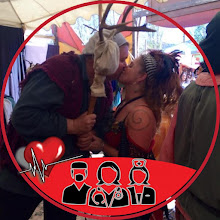
Yeah, it’s not normally all that exciting a creature. It was one of those morts that first appeared in White Dwarf magazine, then found it’s way into the Fiend Folio. The Fiend Folio is a book mostly known as being filled with monsters that seemed to be randomly rolled off of a bunch of charts, with art by Hieronymus Bosch. The Dire Corby is no exception.
But, it is always possible to make lemonade from the many lemons in the book. The Hook Horror is one of those monsters that has evolved over time away from the terrible depiction in the Folio into a fairly cool beastie. Both the Horrors and the Corbies were featured at some point in those Salvatore Drizzt books, and that probably has a lot to do with them being upgraded, at least in appearance.
I never dreamed of using the Corby. With so many cool monsters around, why bother with the various page-filler scrub creatures that litter game material? But I had a big change of heart about this particular monster some months ago when I bought a cheap copy of a Drizzt graphic novel. I wasn’t a big fan of the books or the character, but I was getting ready to do a campaign set in Night Below, and most of the comic took place in The Underdark. I got it for inspiration.
In the graphic novel, Drizzt and his little deep gnome companion get jumped by a flock of Dire Corbies while they are travelling in the Underdark. They are scary and cool here. They even give the cry of “doom!” It’s sounds stupid in the Folio description, but in the graphic novel it is comes off as chilling. These Corbies are black and sinewy, kind of like the creature from the Alien movies. They have nasty claws, and their heads are those of crows, but with tiny, glowing eyes (unfortunately, I haven’t been able to find them online as depicted in the graphic novel. The crude picture above was the best I could find).
So last night in my Night Below game, the party left the kingdom of the deep gnomes to head to the deeper caverns. They encountered a human ranger of the Underdark, and he told them more about the horrors below, including that they might need to go through Corby territory. Choosing that path over the more hazardous and treacherous tunnel, they found themselves swarmed by flocks of hundreds of Corbies. Not too worry – unbeknownst to them the Corbies would flee when 80 of them were slain (note: I was replacing the Grell encounter area in NB book 2 with this encounter).
The players put the tougher fighter types into a circle, with the couple of magic users in the middle. They wanted to protect the low hit point MU’s, but they didn’t really do a good enough of a job making a tight circle, and the Corbies just swarmed on everybody. I didn’t use figs for the Dire Corbies, I just said they were on everyone. Each person was on the average getting attacks from at least 3 of the creatures, and the Corbies have two D6 attacks, so it started adding up pretty damn quick. The elvish MU, Lumarin, used levitate to float above the melee, but the MU/Thief named Lily was not so lucky. Lily had a fairly poor AC, and if I had not made lots of poor rolls on her attackers, she would have been ripped apart. Still, when the battle was over, Lily was at negative 5, but Kayla the hobbit cleric did a good job of getting heals on people.
It was nice to run a huge battle without having to move lots of miniatures around. It took the party a while to kill 80 of the Dire Corbies, but nobody got killed. It was a nice long battle, and I was sweating from the bookkeeping and the dice rolling workout. I must have made over two hundred rolls in that hour and a half. Phew!


















